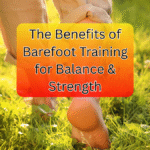Grip Strength
Have you ever considered that something as simple as your grip strength could predict how long you’ll live? It might sound surprising, but research has consistently shown that grip strength is a powerful indicator of overall health and longevity.
In this article, we’ll explore why grip strength matters, how it’s linked to a longer life, and—most importantly—how you can improve it with simple, effective exercises.

The Science Behind Grip Strength and Longevity
Multiple studies, including research published in The Lancet, have found that weaker grip strength is associated with a higher risk of chronic diseases, disability, and even early mortality. But why is this the case?
1. A Marker of Overall Muscle Health
Grip strength isn’t just about how firmly you can shake someone’s hand—it reflects total body strength, particularly in your upper body. Strong muscles are crucial for mobility, balance, and metabolic health. Weak muscles, on the other hand, are linked to sarcopenia (age-related muscle loss), frailty, and increased fall risk.
2. Linked to Heart Health
A study in the American Journal of Preventive Medicine found that low grip strength correlates with cardiovascular disease risk. Strong grip strength suggests better circulation, lower inflammation, and a healthier heart.
3. Indicator of Bone Density
Weak grip may signal poor bone health, increasing the risk of osteoporosis and fractures—a major concern as we age.
4. Cognitive Function Connection
Research suggests that declining grip strength may also be linked to cognitive decline, including conditions like dementia. This could be due to shared risk factors like poor circulation and inflammation.
How to Test Your Grip Strength
Before improving your grip strength, it helps to know where you stand. A simple way to measure it is with a hand dynamometer, a device that records grip force in kilograms or pounds.
Video Credits
- Average grip strength by age & gender (based on studies):
- Men (30-39): ~50-60 kg
- Women (30-39): ~30-35 kg
- Declines with age, but maintaining strength slows this trend
If you don’t have a dynamometer, try this quick test:
- Farmer’s Carry Test – Carry heavy grocery bags or dumbbells for 30 seconds. If it feels extremely difficult, your grip may need work.
- Dead Hang Test – Hang from a pull-up bar for as long as possible. Less than 30 seconds? Time to train!
How to Improve Grip Strength for a Longer, Healthier Life
The good news? Grip strength can be improved at any age. Here are the best exercises and habits to boost it.
1. Hand Gripper Exercises
- Use a hand gripper (adjustable resistance is best).
- Aim for 3 sets of 10-15 squeezes per hand.
2. Dead Hangs
- Hang from a pull-up bar for 10-30 seconds.
- Progress by increasing hold time or adding weight (weighted vest or belt).
3. Farmer’s Walks
- Carry heavy dumbbells or kettlebells (start with 10-20 lbs per hand).
- Walk for 30-60 seconds.
4. Towel Grip Pull-Ups
- Drape a towel over a pull-up bar and grip it instead of the bar.
- Perform pull-ups or just hang to challenge grip endurance.
5. Rice Bucket Training
- Fill a bucket with rice and dig your hands in, opening and closing fists.
- Great for rehab and endurance.
6. Pinch Grips
- Hold weight plates (5-10 lbs) between fingers and thumb for 10-30 seconds.
7. Wrist Curls & Reverse Curls
- Strengthen forearm muscles with light dumbbells (3 sets of 12-15 reps).
Lifestyle Tips to Maintain Strong Grip Strength
Beyond exercises, these habits help preserve grip strength:
✅ Eat a Protein-Rich Diet – Supports muscle maintenance (lean meats, beans, dairy).
✅ Stay Hydrated – Dehydration reduces muscle function.
✅ Manage Stress & Sleep Well – Cortisol weakens muscles over time.
✅ Avoid Smoking & Excessive Alcohol – Both accelerate muscle loss.
Final Thoughts: Why Grip Strength Matters More Than You Think
Grip strength isn’t just about opening stubborn jars—it’s a window into your overall health. By improving it, you’re not only boosting your physical capabilities but also potentially extending your lifespan.
Start incorporating grip-strengthening exercises today, and you’ll likely notice benefits in daily activities, athletic performance, and long-term wellness.
What’s your grip strength like? Try the dead hang test and share your results in the comments!











